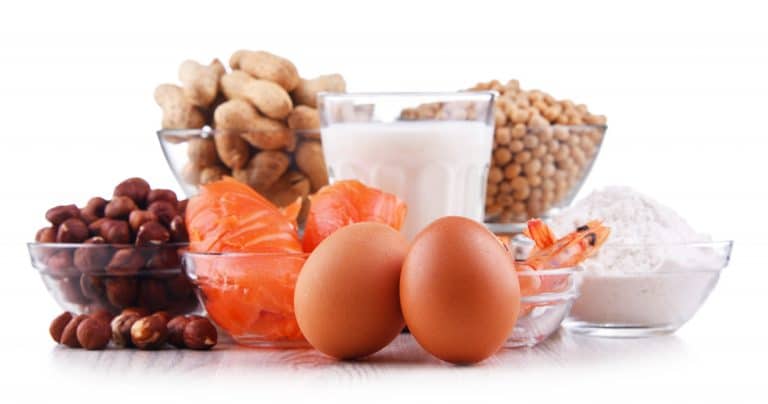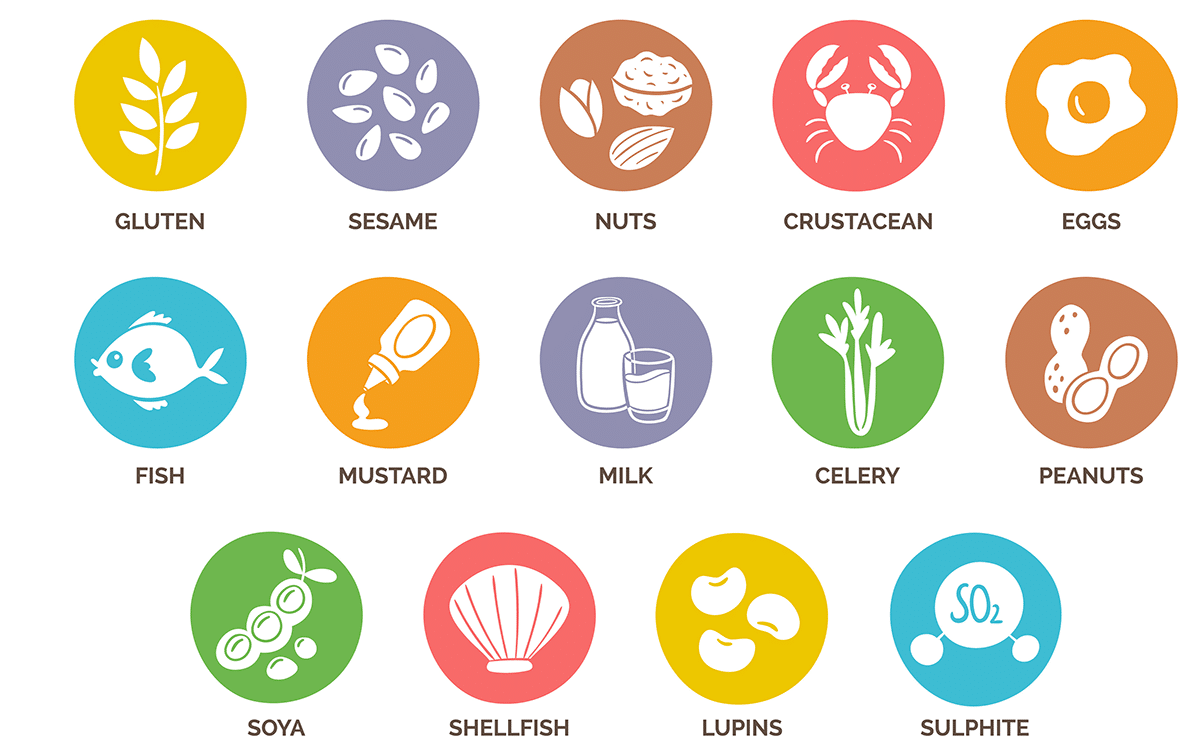
For many years anyone involved in the hospitality industry has been aware of food allergens, the most notable probably being nuts. But in recent years we have had to acknowledge and publish information about fourteen of the most common allergens. Staff are meant to be fully aware of these allergens and answer questions concerning them and menus need to state any ingredients that may be included in the list.
Just for reference here are the fourteen ingredients that every caterer should now be aware of;

- celery / celeriac which includes celery stem, leaves, seeds and root
- cereals containing gluten. The most common being wheat flour but also includes any products containing gluten such as couscous, pastry, sauces and soups
- crustaceans – crabs, lobster, prawns and products such as shrimp paste used in Thai cooking
- eggs, so be careful with cakes and pastries and anything that may have been egg-washed
- fish, which is fairly obvious but also consider stock cubes and Worcestershire sauce
- lupin, often used in flour and can be found in pasta
- milk and products containing lactose which might include some dried powdered soups and sauces
- molluscs – mussels, squid, snails and oyster sauce
- mustard, liquid mustard and mustard seeds often found in marinades and particularly curries
- nuts – cashews, almond and hazelnuts that grow on trees but does not include peanut
- peanuts or groundnut and its derivatives
- sesame often found in bread or on burger buns and used extensively in Chinese cookery
- soya often found in bean curd and used as a meat substitute and used extensively in Chinese cuisine
- sulphur dioxide (sulphates) found in dried foods like raisins but also in mushrooms and used in the wine and beer industry
In the UK it has been law since 2014 to publish information concerning allergy causing ingredients on menus but since the pandemic I have noticed that establishments are using “allergens” as an excuse not to prepare fresh food. Unfortunately, have we now reached a stage where the fear of producing food that may contain an allergen has got in the way of creativity? Let me explain.
There is absolutely no doubt that someone suffering from a food allergy is in danger of serious illness or even death. There was a famous case in the UK that involved a young girl who died after eating a pre-prepared sandwich bought from a popular high street chain. It was a case that certainly highlighted the need for better labelling and much more awareness amongst food handlers of the dangers of allergies.
As a chef and restaurateur I have had many customers who have asked if a certain dish may contain nuts or gluten and I have always been able to advise them accordingly because virtually everything from my kitchen has been made in the kitchen and I know exactly what is in each dish. I have also been able to accommodate special requests and make sauces that are free of whatever ingredient the customer is allergic to.
But recently I have been working for a large organisation here in the UK that is not producing anything in the kitchen. Apparently they used to produce daily specials but a directive came down from head office prohibiting this practice. During a recent small function I wanted to toss some new potatoes with butter and was told I could not because butter is dairy and not vegan! We actually make coleslaw using vegan mayonnaise because there is no egg – a disgusting product full of chemicals.
Looking further afield I have noticed that all food establishments are displaying allergy information on their menus as they should be but, also, that there is a lack of creativity coming from the kitchen. It would be a shame if we lost the individualism of kitchens because of the fear of serving someone something they were allergic to.
As much as I sympathise with anyone who has a food allergy I do firmly believe that it is the responsibility of that person to inform the establishment that they are eating in and then make an informed decision about whether or not to stay and what is suitable for them from the menu.